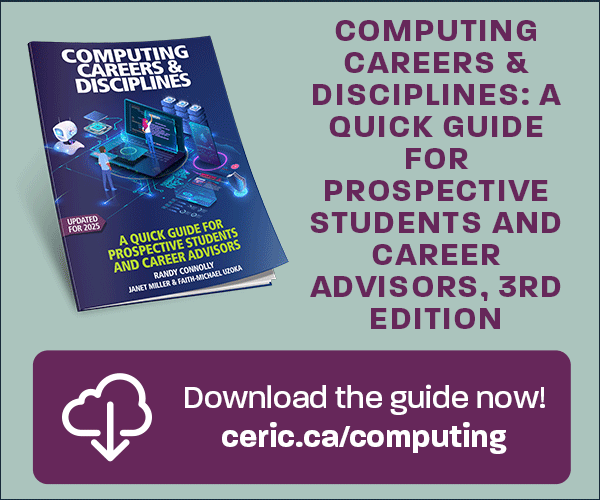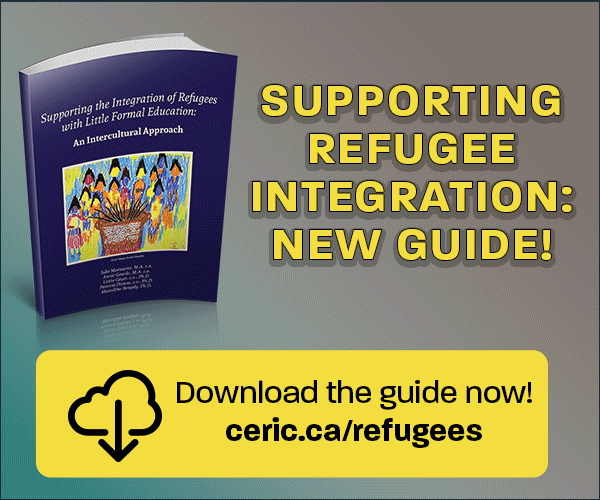Self-assessed Intelligence in Adults: The Role of Gender, Cognitive Intelligence, and Emotional Intelligence
Keywords:
self-assessment, intelligence, gender, cognitive intelligence, adult, emotions, emotional intelligenceAbstract
The contribution of psychometrically assessed cognitive intelligence (g)* and emotional intelligence (EI) in predicting self-assessed intelligence (SAI) was examined for both men and women. Adults participating in a career exploration program were asked to estimate their cognitive intelligence, then given an objective measure of cognitive ability followed by an ability-based EI assessment. Overall, objective measures of intelligence accounted for 30% of the variance in SAI suggesting that SAI can be a useful tool in career counselling. Gender provided 2% of variance. Men tended to overestimate and women underestimate SAI but men were more accurate estimators of their own abilities than women (r = .61 vs .48). Ability based EI provided about 1% extra variance regardless of degree of accuracy in SAI. Results suggest that EI overall does not mediate between SAI and objective measures and is likely not a good predictor of SAI accuracy.
References
Bar-On, R. (1997). Bar-On Emotional Quotient Inventory (EQi): A test of emotional intelligence. Toronto, Canada: Multi-Health Systems.
Bar-On, R. (2005). The Bar-On model of emotional-social intelligence. In P. FernandezBerrocal & N. Extremera (Guest Eds.), Special Issue on Emotional Intelligence. Psicothema, 17.
Beloff, (1992). The research with B.D.: A reply to George Hansen. Journal of Parapsychology, 56, 363-365.
Berg, C. & Sternberg, R. (1985). Response to novelty: Continuity versus discontinuity in the developmental course of intelligence. In H. Reese (Ed.) Advances in child development and behavior. New York: Academic Press.
Brackett, M., Rivers, S., Shiffman, S., Lerner, N., & Salovey, P. (2006). Relating emotional abilities to social functioning: A comparison of self-report and performance measures of emotional intelligence. Journal of Personality and Social Psychology, 91(4), 780-795.
Carroll, J. (1993). Human cognitive abilities: A survey of factor analytic studies. New York, NY: Cambridge University Press.
Caruso, D. & Wolfe, C. (2006). A guide to MSCEIT feedback.
Cattell, R. (1971). Abilities, their structure, growth and action. New York: Houghton Mifflin.
Chamorro- Premuzic, T. & Furnham, A. (2005). Personality and Intellectual Competence. Mahwah, NJ: Lawrence Erlbaum Associates.
Chamorro- Premuzic, T. & Furnham, A. (2006). Personality and self-assessed intelligence: Can gender and personality distort self-assessed intelligence? Educational Research and Reviews, 1(7), 227-233.
Colvin, C.R., & Block, J. (1994). Do positive illusions foster mental health? An examination of the Taylor and Brown formulation. Psychological Bulletin, 116, 3-20.
Colvin, C.R., Block, J., & Funder, D. (1995). Overly positive self-evaluations and personality: Negative implications for mental health. Journal of Personality and Social
Psychology, 68(6), 1152-1162.
Conte, J. (2005). A review and critique of emotional intelligence measures. Journal of Organizational Behavior, 26(4), 433-440.
Frijda, N. (1988). The laws of emotion. American Psychologist, 43, 349- 358.
Furnham, A., & Rawles, R. (1995). Sex differences in the estimation of intelligence. Journal of Social Behavior and Personality, 10, 741-745.
Furnham, A., & Gasson, L.(1998). Sex differences in parental estimates of their children’s intelligence. Sex Roles, 38, 151-162.
Gardner, H. (1983). Frames of mind: The theory of multiple intelligences. New York: Basic Books.
Gardner, H. (1998). Are there additional intelligences? The case for naturalist, spiritual and existential intelligences. In J. Kane (Ed.), Education, information and transformation (pp. 111-132). Englewood Cliffs, NJ: Prentice Hall
Goleman, D. (1995). Emotional intelligence: Why it can matter more than IQ for character, health and lifelong achievement. New York, NY: Bantam.
Goleman, D., & Boyatzis, R. (2005). Emotional Competence Inventory (ECI). Boston, MA: Hay Resources Direct.
Halpern, D., Benbow, C., Geary, D., Gur, R., Hyde, J., & Gernsbacher, M. (2007). Sex, math and scientific achievement: Why do men dominate the fields of science, engineering and mathematics? Scientific American Mind, 18(6), 44-51.
Hogan, W. (1978). IQ self-estimates of males and females. Journal of Social Psychology, 106, 137-138.
Kruger, & Dunning, (1999). Unskilled and unaware of it: How difficulties in recognizing one’s own incompetence lead to inflated self assessments. Journal of Personality and Social Psychology, 77(6), 1121-1134.
Maltby, J., Day, L., & Macaskill, A. (2007). Personality, Individual Differences and Intelligence. Essex, England: Pearson Education Limited.
Mayer, J., Caruso, D. & Salovey, P. (2000). Emotional intelligence meets traditional standards for an intelligence. Intelligence, 27(4), 267-298.
Mayer, J., Salovey, P.,& Caruso, D. (2000). Models of emotional intelligence. In R.J. Sternberg (Ed.), Handbook of intelligence (pp. 396-420). Cambridge, MA: Cambridge University Press.
Mayer, J., Salovey, P. & Caruso, D. (2002). Mayer-Salovey-Caruso Emotional Intelligence Test (MSCEIT): User’s manual. Toronto, ON: Multi-Health Systems.
Mayer, J., Salovey, P., & Caruso, D. (2004). Emotional intelligence: Theory, findings and implications. Psychological Inquiry, 15(3), 197-215.
McEnrue, & Groves, (2006). Choosing among tests of emotional intelligence: What is the evidence? Human Resource Development Quarterly, 17(1), 9-42.
Muller, C. & Dweck, C. (1998). Praise for intelligence can undermine children’s motivation and performance. Journal of Personality and Social Psychology, 75, 33-42.
Nevo, B. & Khader, A. (1995). Crosscultural, gender and age differences in Singaporean mothers’ conceptions of children’s intelligence. Journal of Social Psychology, 135, 509-517.
Ortony, A., Revelle, W., & Zinbarg, R. (2007). Why emotional intelligence needs a fluid component. In Matthews, G., Zeidner, M. & Roberts, R.D. (Eds.) The Science of
Emotional Intelligence. Oxford:Oxford University Press.
Paulhaus, D. (1991). Measurement and control of response bias. In Robinson, J.P., Shaver, P. R. & Wrightsman, L.S. (Eds.), Measures of Personality and Social Psychological Attitudes. San Diego: Academic Press.
Paulhaus, D., Harms, P., Bruce, N., & Lysy, D. (2003). The overclaiming technique: Measuring self-enhancement independent of ability. Journal of Personality and Social Psychology, 84(4), 890-904.
Paulhaus, D., Lysy, D., & Yik, (1998). Self-report measures of intelligence: Are they useful as proxy IQ tests? Journal of Personality, 66(4), 525-554.
Roberts, R., Zeidner, M., & Matthews, G. (2001). Does emotional intelligence meet traditional standards for an intelligence? Some new data and conclusions. Emotion, 1, 196-231.
Shipstone, K. & Burt, S. (1973). Twenty-five years on: A replication of Flugel’s (1947) work on lay popular views of intelligence and related topics. British Journal of
Educational Psychology, 56, 183- 187.
Spearman, C. (1927). The abilities of man. New York, NY: Macmillan. Sternberg, R. (1990). Metaphors of mind: Conceptions of the nature of intelligence. Cambridge, MA: Cambridge University Press.
Sternberg, R., Conway, B., Ketron, J., & Bernstein, M. (1981). People’s conceptions of intelligence. Journal of Personality and Social Psychology, 41, 37-55.
Swim, J. (1994). Perceived versus meta analytic effect sizes: An assessment of the accuracy of gender stereotypes. Journal of Personality and Social Psychology, 66, 21-36.
Taylor, S.E., & Brown, J.D., (1988). Illusion and well-being: A social psychological perspective on mental health. Psychological Bulletin, 103, 193-210.
Thorndike, E. (1920). Intelligence examinations for college entrance. Journal of Educational Research, 1, 329-337.
Vogt, D. & Colvin, C.R. (2005). Assessment of accurate self-knowledge. Journal of Personality Assessment, 84(3), 239-251.
Wechsler, D. (1950). Cognitive, conative, and non-intellective intelligence. American Psychologist, 5, 78-83.
Wober, M. (1973). East African undergraduates’ attitudes concerning the concepts of intelligence. British Journal of Social and Clinical Psychology, 12, 431-432.
Wonderlic, E. F. (1992). Wonderlic Personnel Test and scholastic level exam user’s manual. Libertyville, IL: Wonderlic Personnel Test, Inc.

Downloads
Published
How to Cite
Issue
Section
License

This work is licensed under a Creative Commons Attribution-NonCommercial-NoDerivatives 4.0 International License.
















